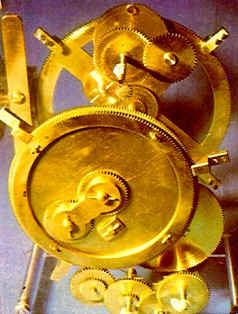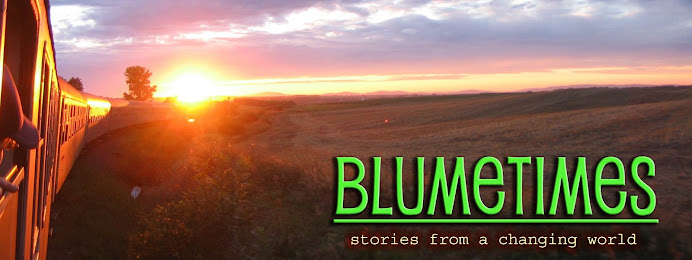
I'm fascinated by clocks these days. In particular, clocks of purpose, clocks of meaning, clocks designed to do more than tell what we've come to call time.
It's an eternal question - not only the relativity of time, but why we perceive it, why we pass through it. I remember a conversation years ago with a few actor/artist types wondering why it is that we age. Why it all goes by so fast. It seems a tragic bargain sometimes - this swift existence - a bird flying through an open room from one dark place to another. Our awareness of it intermittent and fleeting. We almost shut down our awareness because it's too painful to watch it all slip inexorably away. But by shutting down, we lose what we most want to retain. And yet there are those moments of infinite presence, wonder, luminousness that make the infinitely high price seem utterly worthwhile.
So I've been reading about unusual clocks:
The Clock of the Long Now: A work in development. A mechanical clock designed to sit on a remote mountaintop in Nevada, run for 10,000 years, and renew our fast-paced, apocolyptically-oriented culture's lost sense of long term future.
The Antikythera Mechanism: An ancient device (circa 100BC) found at the bottom of the sea off the Greek island of Antikythera. Designed to calculate astronomical positions. It took 100 years from the time it was found to when they figured out what it was because the figuring-out technology didn't exist until recently.

The Chronophage: (See above) Also known as the Corpus Clock is a mechanical clock created in honor of John Harrison, the man who invented the marine chronometer. This was a fabulously accurate clock which allowed seafarers to calculate longitude, expanding the possibilities of safe long-distance sea travel (and the expansion of the British empire). Harrison invented something called the grasshopper escapement, a control device for the release of a clock's power. The Corpus Clock takes this a step or 10 further by putting the escapement on the outside of the clock, rendered in the form of a giant, monstrous grasshopper which eats time.
Monstrance Clock: One mother of a clock. Circa 1570. Showed the hours, the motions of 23

stars, the position of the sun and moon in the zodiac, the astrological houses, and phase of the moon. Also gave day of the year, saints' days, and had an alarm on top.
I think the new piece is going to have something to do with all this. I've been obsessing about the Clock of the Long Now for a while. I love the idea that fundamentally they're trying to find a way to rescue the future for people who won't even be around in the future.
It's a form of extreme altruism, perhaps. But if we cherish this world, we can't just cherish it for ourselves. We have to be concerned that it will go on long after we're gone just because it's worthy of existence. Life itself is worthy of continuance.
Is it, though? Why do we think that? What assumptions are we making?
What story are we trying to tell ourselves?
To be continued...




No comments:
Post a Comment